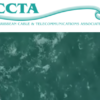News

Congressional Subcommittee Begins “Comprehensive Copyright Review”
This week, the Intellectual Property and the Internet Subcommittee of the House Committee on the Judiciary began its “comprehensive review” of U.S. copyright law, kicking things off with a hearing that included testimony from a handful of legal scholars and attorneys whose views on copyright are quite divergent.
Witnesses for the subcommittee’s first hearing included Jon Baumgarten, former General Counsel of the U.S. Copyright Office; Laura Gasaway, of the University of North Carolina Law School; Daniel Gervais, the Director of the Vanderbilt Law School Intellectual Property Program; Pam Samuelson of the University of California at Berkeley Law School, and leader of the Copyright Principles Project; and Jule Sigall the Assistant General Counsel for Copyright at Microsoft, and former Associate Register for Policy and International Affairs of the U.S. Copyright Office.
Sigal reportedly recommended that Congress consider creating a “safe harbor” for consumers similar to the safe harbor provisions found under Section 512 of the DMCA, saying that Congress should contemplate legal protections to make clear that “ordinary and reasonable personal use of legitimately purchased content will be enabled, not stifled, by copyright.
“I’m not talking about piracy here, but situations in which consumers who have legitimately purchased content are confronted and confused by assertions that actions enabling the enjoyment of that content are somehow infringing,” Sigal said.
Samuelson concurred, saying that crafting such a safe harbor should be among Congress’ top priorities as it considers copyright reform.
Baumgarten, on the other hand, wondered aloud whether the concerns of consumers aren’t already too dominant in the conversation about potential copyright reforms.
“The copyright debates today and search for changes are too often driven by those enthused by the promise of new technology…. that anything standing in the way is to be simply tossed aside in favor of permitting it to happen,” Baumgarten said.
Baumgarten’s concern was echoed by at least one subcommittee member, Rep. Mel Watt (D-NC), who said that in recent years, “there has been a shift in the public discourse about copyright away from the people who actually devote their talent to create works for the benefit of society, and those who invest in them, toward the users of works and the financial interests of those companies eager to commercially exploit them.”
“Free speech does not mean free stuff,” Watt added, expressing a sentiment that I guarantee you is shared by DMCA Force clients for whom we perform DMCA takedown services.
I’ve read over the recommendations made by the Copyright Principles Project in its “Directions for Reform” report and found them to be mostly sensible. My only concern is similar to the one expressed by Baumgarten at the hearing: the CPP might be recommending a bit too much relaxing of the rules in some areas with respect to consumer use of copyrighted materials.
Having said that, the report is really very balanced, and includes a number of recommendations that I think will sit well with a lot of rights-holders. I’ve highlighted a couple of these recommendations below, but for the context and details of the suggestions, I highly recommend reading the report for yourself. I’ve left the recommendation numbers intact below, so you will be able to easily find the explanatory text relating to each recommendation within the report.
Several of the CPP’s more appealing recommendations — from my perspective, at least:
Recommendation #1: Copyright law should encourage copyright owners to register their works so that better information will be available as to who claims copyright ownership in which works.
Recommendation #4: The Copyright Office should give serious consideration to developing some mechanism(s) through which users could receive guidance on “fair use.”
Recommendation #5: A small claims procedure should be available for resolving small-scale copyright disputes. (Note: the CPP isn’t the only group that likes this idea….)
Recommendation #7: Copyright owners should have the exclusive right to control communications of their protected works to the public, whether by transmission or otherwise.
Recommendation #16: More elements in copyrighted works than just ideas and information should be excluded from the scope of copyright’s protection for original works of authorship.
Recommendation #17: Copyright law should recognize that there are more fair use purposes than is recognized in the current statute.
Recommendation #20: Limitations and exceptions to copyright law ought to be based on principles, rather than being largely the product of successful lobbying.
Recommendation #25: Serious consideration should be given to extending to authors of works, other than those made for hire, a right to be identified as authors of their works.
Google Empowers DMCAForce to shut down sites…
March 4, 2022

Change the Way you Protect your Content
September 15, 2021

Joins us in the Anti-Piracy Panel at the CCTA 2020 in Bahamas
February 9, 2020
Book Your Meeting During Affiliate Summit
January 22, 2020
Got questions about protecting your digital assets from copyright infringement?


